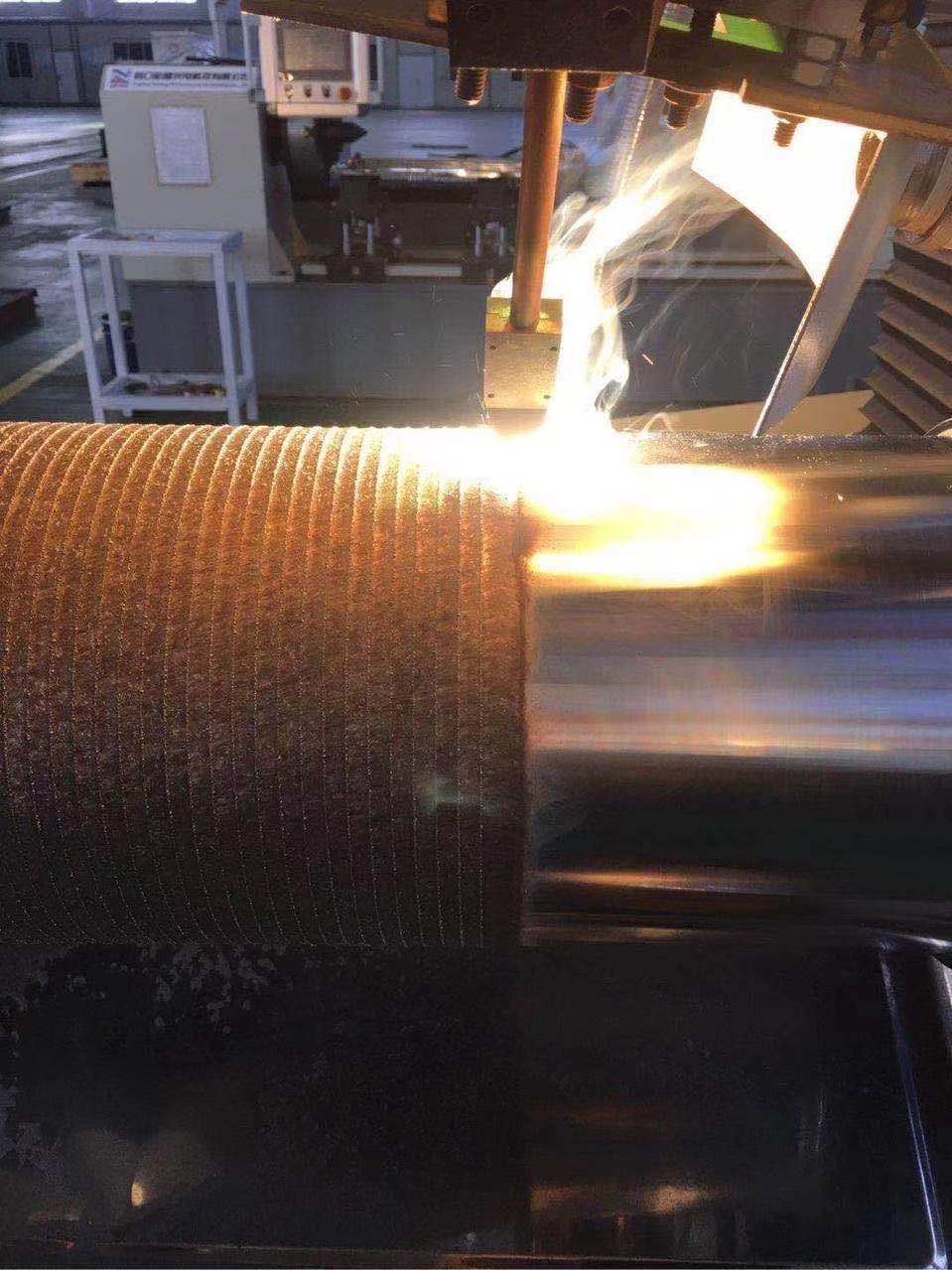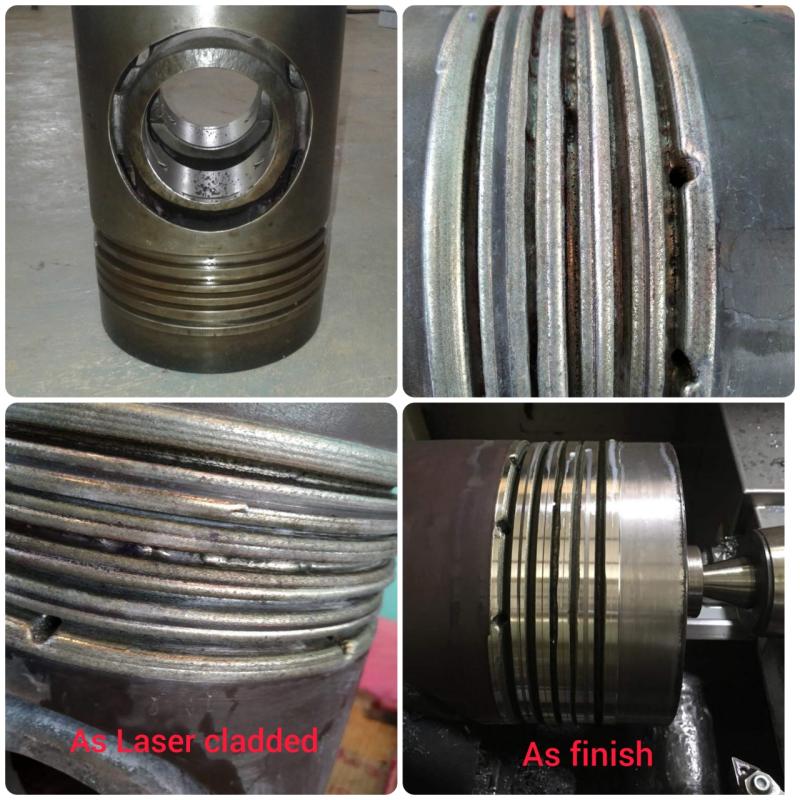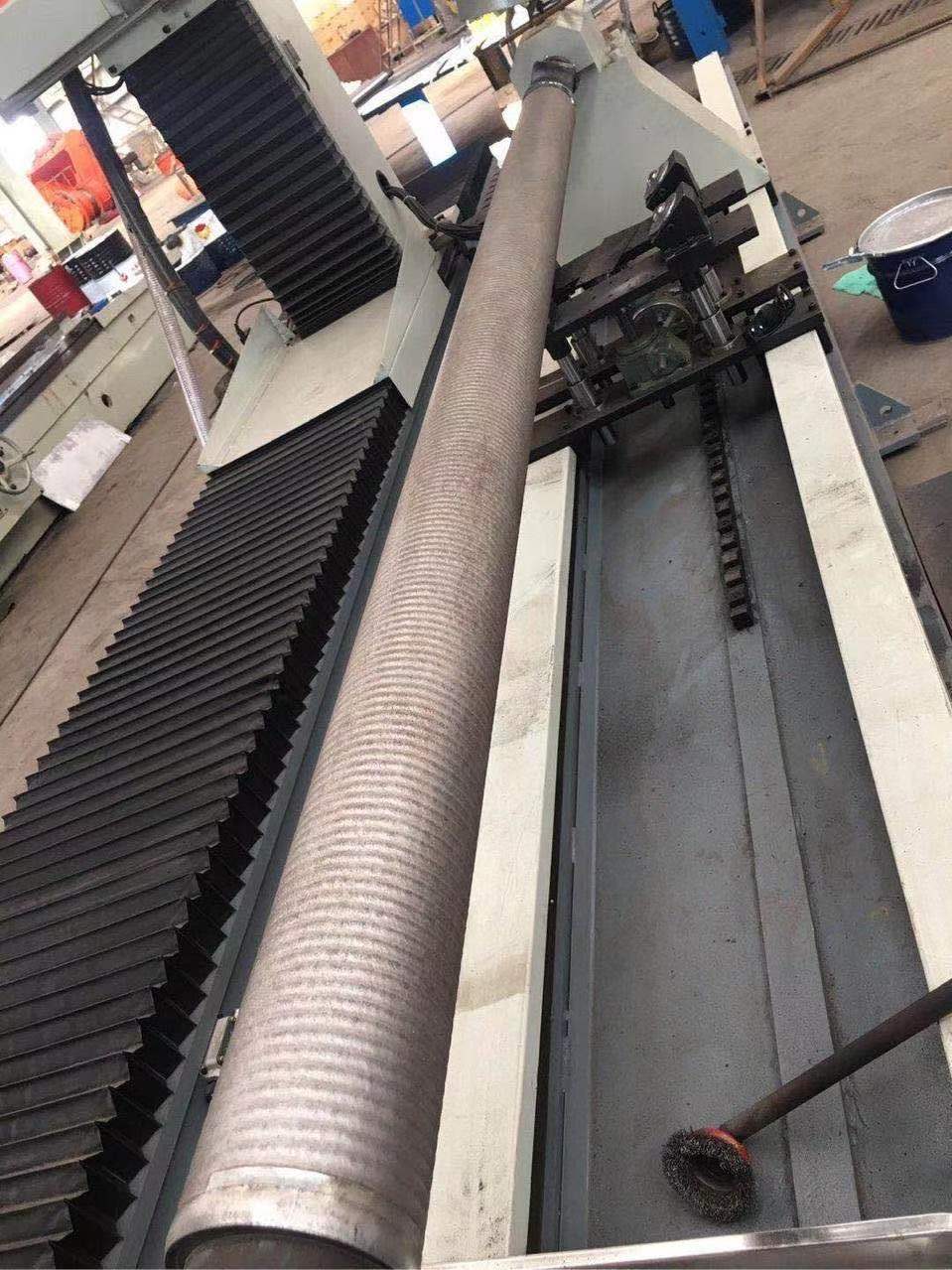The average limit output of adults is 60-90kg, depending on the physical condition.
Generally, the flow direction of the shut-off valve is designed to be low in and out. When the person closes the valve, the human body horizontally pushes the hand wheel to rotate, so that the valve flap moves downward to achieve closing. At this time, it is necessary to overcome the combination of forces in three aspects, that is, :
1) axial thrust Th;
2) filler and valve stem friction force Fb;
3) The valve stem and the disc core contact friction force Fc
The sum of the moments is ∑M=(Fa+Fb+Fc)R
It can be seen that the larger the exit diameter is, the larger the axial thrust is. When approaching the closed state, the axial thrust is almost close to the actual pressure of the pipe network (P1-P2≈P1, P2=0 when closed)
For example, a DN200 diameter shut-off valve is used on a 10 bar steam pipe, and only the first item closes the axial top thrust.
Fa=10×πr2=3140kg, and the horizontal force required to close is

It is close to the limit of the horizontal force that the normal human body can output, so it is very difficult for a person to completely close the valve under such conditions. Of course, some factories suggest that such valves be installed in reverse to solve the problem of being difficult to close, but there is a problem that it is difficult to open after closing.
Large-diameter globe valves are generally used in boiler outlets, main sub-cylinders, steam mains, etc. These locations have the following problems:
1) The general pressure difference of the boiler outlet is relatively large, so the steam flow rate is also larger, and the erosion damage to the sealing surface is also greater. In addition, the boiler combustion efficiency cannot be 100%, which will cause the steam at the outlet of the boiler to have a large water content, which is easy to cause cavitation and cavitation damage to the valve sealing surface.
2) For the shut-off valve near the boiler outlet and the sub-cylinder, intermittent steam overheating occurs from the steam coming out of the boiler. In the process of saturation, if the boiler water softening treatment is not too good, some acid will be precipitated. Alkali substances can cause corrosion and erosion on the sealing surface; some crystallizable substances may also adhere to the sealing surface of the valve to crystallize, resulting in the valve not being tightly sealed.
3) The inlet and outlet valves of the cylinders are caused by the steam consumption after the valve due to the production requirements, etc., and the steam consumption is large and small. When the flow rate changes greatly, the phenomenon of flashing and cavitation is easy to occur. The sealing surface of the valve causes erosion, cavitation and other damage.
4) Generally, when the large diameter pipeline is opened, the pipeline needs to be preheated, and the preheating process generally requires a small flow of steam to pass through, so that the pipeline is slowly and evenly heated to a certain extent, then the shutoff valve can be completely opened to avoid the pipeline rapidity. The temperature rises to cause excessive expansion, which damages part of the joint. However, in this process, the opening degree of the valve is often very small, so that the erosion rate is far greater than the normal use effect, and the service life of the valve sealing surface is seriously reduced.
1) It is first recommended to select the bellows seal stop valve to avoid the influence of the frictional resistance of the plunger valve and the packing valve, and the switch is easier.
2) The valve seat must be selected from materials with good erosion resistance and wear resistance, such as stellite cemented carbide;
3) It is recommended to adopt a double valve flap structure, which does not cause excessive erosion due to small opening, which affects the service life and sealing effect.
Nickel Based Laser Cladding Powder
Ni base alloy powder is mainly made of NiCrBSi or NiBSi. Ni-based self-fluxing powder has good wettability, corrosion resistance and high temperature self-lubricating effect, and is used in components with heat resistance, corrosion resistance and thermal fatigue resistance. In general Ni35,Ni45,Ni60 etc can be used for laser cladding, the No means hardness of powder. Inconel 625 and 718 has good corrosion property under higher temperature, also widely used for laser cladding process.
Cobalt based Laser Cladding Powder
Cobalt-based alloy powder is the cemented carbide resistant to various types of wear and corrosion as well as high temperature oxidation. That is, the so-called cobalt-chromium-tungsten (molybdenum) alloy or Stellite alloy cobalt-based alloy is mainly composed of cobalt, containing a considerable amount of nickel, chromium, tungsten and a small amount of molybdenum, niobium, tantalum, titanium, Alloying elements such as lanthanum, and occasionally a class of alloys containing iron.
Co-based self-fluxing alloys have good high temperature performance and wear resistance and corrosion resistance, and are used in petrochemical power, metallurgy and other industrial fields where they are wear-resistant, corrosion-resistant and high-temperature resistant.

Iron based Laser Cladding Powder
The work pieces required for laser cladding and manufacturing in the actual industry are mainly carbon steel and cast steel. The Fe-based alloy is close to the base material in composition and has good wettability. The advantage of Fe base powder is lower cost and good wear resistant of cladding layer. As a result, it`s the most widely used for laser cladding process. It is suitable for parts that require local wear resistance and are easily deformed.

WC blended Laser Cladding Powder
Tungsten carbide blended with Ni alloy powder is the best choice for wear resistant work piece. This unique process can bring excellent wear, corrosion and high temperature resistant. Our blend powder can achieve different portion of WC from 35% to 60% without crack under suitable cladding parameter.

Iron Alloy Powder,Nickel Alloy Powder,Cobalt Alloy Powder,Laser Cladding Powder
Luoyang Golden Egret Geotools Co., Ltd , https://www.xtcwelding.com